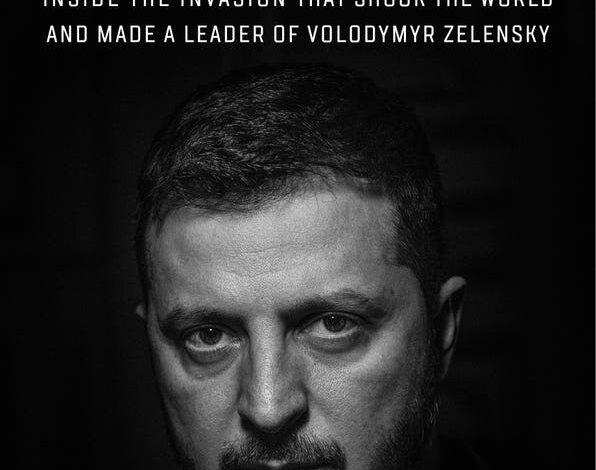How Volodymyr Zelensky’s Rhetorical Skills Rallied Support For Ukraine

dpatop – 16 January 2024, Switzerland, Davos: Ukrainian President Volodymyr Zelensky during a speech … [+]
“They’re watching. You’re a symbol.”
That’s the pep talk Ukrainian president Volodymyr Zelensky gave himself just seven hours after Russia launched a military invasion of the country in February 2022.
“The entire world was watching. ‘They’ meant all of us,” says Simon Shuster, author of The Showman. “He [Zelensky] took note of the fact he was under the eyes of the world. That put him into the frame of mind he would need as a wartime leader.”
As a correspondent for TIME, Shuster first interviewed Zelensky before he won the 2019 presidential election. Since the invasion, Shuster had unprecedented access to Zelensky, interviewing him on trips to the front lines, in bunkers, on trains, and in bombed-out neighborhoods.
In a video call with Shuster, I wanted to know more about Zelensky’s transformation from a former comedian to a widely admired and inspiring leader whose communication skills have rallied much of the world to his cause.
According to Shuster, words matter to Zelensky. The comedian-turned-commander has leveraged his communication skills, honed on stage, to generate support and keep his people focused and motivated.
Speak From the Heart
Like most world leaders, Zelensky relies on a team of trusted writers to help him craft speeches that will be seen and heard by a global audience. But Shuster says that, compared to most leaders he’s covered, Zelensky “spends an enormous amount of time working on his speeches, crafting and honing his ideas.”
Zelensky understood that Ukraine could only fend off the attack after its first days with Western support. “They had enough of a stockpile to hold on for a few days,” says Shuster. “But they really needed to win over the world and secure a flood of assistance. How? You have to communicate and win people over. Remind them they’re providing assistance to defend common values.”
The Showman, by Simon Shuster
Shuster adds: “Wars are fought in the minds of men and women long before the shooting starts, and Zelensky, the showman turned president, operated on that plane.”
Zelensky studies great communicators who have influenced public opinion in a crisis. He told Shuster that the ‘performer’ he admires most is Charlie Chaplin, a comedian who lampooned Hitler in the middle of the Holocaust. According to Zelensky, Chaplin used the weapon of information to fight fascism. “Their influence was often stronger than artillery.”
Zelensky’s words resonate because they’re his ideas. He’s not reading copy that’s just placed in front of him. And as he edits, he filters words through the lens of role models he’s chosen to emulate.
Connect to Shared Values
One consistent approach Zelensky applies to most of his wartime speeches is connecting the theme to shared values. He tries to strike the right nerve by invoking historical events and experiences that resonate with his audience.
For example, when speaking to the German Bundestag, Zelensky referenced the Berlin Wall as well as the Holocaust, a deliberate attempt to tug at the heartstrings and win over the German public.
When speaking in the U.S. in front of a joint session of Congress, Zelensky connected Ukraine’s battle to the American struggle for independence. Specifically, he cited the 1777 Battle of Saratoga when Americans won a crucial victory against the British.
This rhetorical flourish is “a kind of calling card,” says Shuster. A calling card that spreads Zelensky’s message beyond the audience seated in front of him.
Use Symbols to Reinforce Ideas
During his speech in Congress Zelensky “offered the gift of a battle flag from the troops in Bakhmut, its fabric covered in their message of hope and resilience,” writes Shuster.
Zelensky said, “Let this flag stay with you, ladies and gentlemen. This flag is a symbol of our victory in this war.”
Symbols are powerful communication devices, and Zelensky knows it. Although Zelensky is not a military officer, he and his team committed to dressing in Army-green camo and fatigues as a “visual reminder” that his citizens are not living in normal times, says Shuster. The clothing conveys the message that “Our leadership is now wartime high command.”
Zelensky has proven his skills as a showman to be valuable in the war, explains Shuster. Zelensky’s appeals on the world stage “coaxed and inspired his peers in the West, convincing them to see this war as their own.”
Source link




